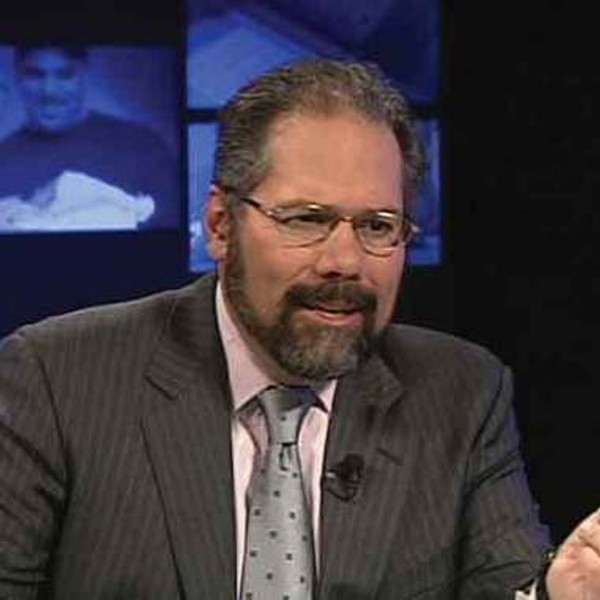In Fahrenheit 9/11, Michael Moore makes a strong case for the removal of the current occupant of the White House in the November election, arguing that President Bush-and the cabal affiliated with him by blood, money, lust for power, or some combination therein-are the primary culprits for the sorry state America finds itself in. While there is little to fault in Fahrenheit 9/11 with regard to the facts (indeed Moore claims that the film has been vetted scene by scene by a squad of fact checkers and that a murder of lawyers is ready to challenge any suit against him), Moore's scope is narrow-intentionally so, fixated as it is on the foibles of the current administration, but blinkered nonetheless. Moore is so intensely focused on a presidential take-down, he loses perspective. In Fahrenheit 9/11, Moore's ingenious guerrilla documentary style that has done yeoman work for him in the past at times obscures as much as clarifies; Moore's selective use of salacious detail is often little more than conspiracy-mongering, the Bizarro equivalent to the far-right fear factory.
Two questions: Are we to believe that the problems of this country can be solved by voting one man out of office? What are the paradigm-defining structures that exist in our country today, whose influence stretches across national borders?
As for the first question, certainly many Americans passionately believe that there has been a betrayal of core American values by the current administration to achieve ideological ends, and Moore (and many others) has crafted a compelling case. But if Bush is defeated in November, will the country shed its cares like a party dress? As we've learned in Afghanistan and Iraq, tyrants and terrorists are easily overthrown, but it's after regime change is accomplished that the hard work begins.
If Kerry does win in the fall, my hope is that we can finally shift our energy from cataloguing the abuses of the Bush administration and wishing the Democrats could do a better job of keeping the president in check, to addressing a conspiracy hiding in plain sight-the corporation.
Like the Catholic Church and the monarchy before it, the corporation has become the world's dominant institution. It defies national boundaries, flouts laws, and uses governments to do its bidding. A legal entity whose power was enshrined by a warped interpretation of the Fourteenth Amendment-that's the one that freed the slaves-a corporation is a legal "person" that is all id and no superego. It has all the rights of a person and none of the responsibilities. (For instance, a corporation cannot go to jail for a crime, it only pays fines. If paying fines in order to commit crimes makes more sense to the bottom line, than a corporation will follow the inexorable logic of the bottom line.) It has no rationale other than as a wealth-creation generator (wealth being defined in dollars and growth percentages, not the wealth of our biosphere, or the other priceless riches we possess that cannot be bagged, tagged, and sold for profit). The corporation is an abstraction in a grey flannel suit that acts like a psychopath.
The Corporation, a film by Mark Achbar, Jennifer Abbott, and Joel Bakan, serves as a useful complement to the single-mindedness of Fahrenheit 9/11, and presents a broader critique of how corporations have been allowed to create tremendous wealth while driving us to the brink of spiritual bankruptcy and environmental catastrophe.
A local instance of corporate psychopathy comes to mind. Between 1940 and 1976, General Electric dumped 1.3 million pounds of PCBs into the Hudson River, although the dumping was legal, GE had been warned in 1970 by Monsanto, the manufacturer of PCBs, that PCBs are a carcinogen. While GE may eventually have to pay for the cleanup of the river, it can never significantly remunerate the residents of the upper Hudson river towns who contracted cancer or reverse the degradation of a national landmark and a local treasure. The consequences of GE's actions are borne not by the abstraction that is the General Electric corporation, but by those of us who live in the Hudson River Valley.
The Corporation will be playing at Upstate Films in August. For dates and show times, call (845) 876-2515 or visit www.upstatefilms.org.
-Brian K. Mahoney


















